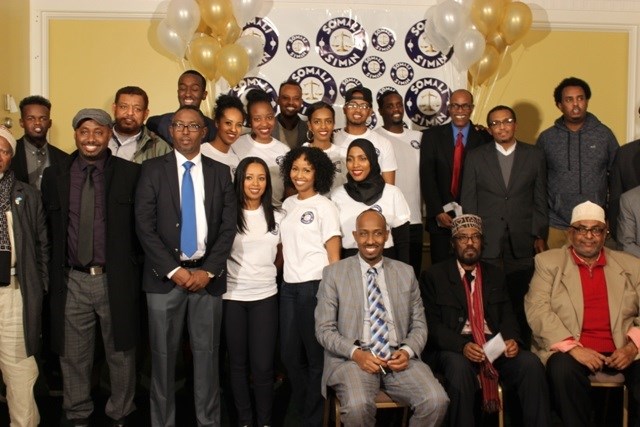Hiiraan Online
Tuesday, February 02, 2016

COLUMBUS, OH (HOL) – In Somalia, political marginalization and failure to achieve a greater level of equality has been a major problem for decades, a conundrum that analysts say despite sharing the same culture and one religion makes many to question the existence a common Somali identity.
Rights groups have earlier suggested that unraveling the challenge would require a legislative or administrative reform to repeal ‘discriminatory’ provisions to end ‘entrenched’ discrimination.
However, a new US-based campaign group tries to challenge the status quo to combat political and social inequality in Somalia to achieve an ambitious goal: Equal Somalia (Soomaali Siman).
At an event organized by the campaign group, Soomaali Siman (equal Somalia) in Columbus Monday, the founders say they aim to mobilize Somali societies across the world to counter the ‘outrageous’
inequality setting which they said threatens the identity of the country and its people.
“Instead of honoring those who didn’t participate the civil war in Somalia, they were instead marginalized politically as minorities.” said professor Abdi Kusow of the campaign’s founders as well as the co-author of a research about the inequality and discrimination faced by Somali minority groups in Somalia last year.
"Its a sad tale that we have to work out towards its elimination."
The group also highlighted an economic marginalization and political exclusion against minority clans, something they said the campaign takes aim to bring to an end.
“The inequality problem is something created by foreign actors that we have assumed as fitting.” Said Dr. Rashid Farah, one of the scholars who attended the event.
"Its a factor that further polarized our people." he said.
In many African states including Somalia, ethnicity has been considered as a major obstacle to modem state-building causing political instability and violent conflict.
Scholars also argued that ethnicity, so commonly invoked as an explanation of conflict in contemporary African states, seemed less relevant and led to social consequences of political and economic exclusion that followed the state collapse.